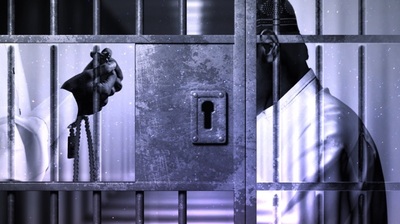ND Law’s Religious Liberty Clinic represents Sikh, Jewish, and Muslim groups defending a Muslim inmate’s religious rights

A Muslim man’s right to practice his religion was suppressed by state officials while being held in a New York correctional facility. His case highlights the importance of interpreting religious freedom laws to provide sufficient remedies in protecting the rights of religious minority groups in prison.
The Notre Dame Law School Religious Liberty Clinic filed an amicus brief last month in the U.S. Court of Appeals for the Second Circuit case Loving v. Morton, representing Sikh, Jewish, and Muslim groups. The brief argues that the Second Circuit should re-examine its precedent to allow for monetary damages for individual-capacity suits under the Religious Land Use and Institutionalized Persons Act (RLUIPA).
Individual-capacity damages under RLUIPA are vital to protect religious minorities in prisons. When religious minorities are not able to bring claims for damages, prison officials often lack incentives to sufficiently protect these religious rights.
Loving v. Morton
Click on the link above to read the amicus brief that Notre Dame Law School’s Religious Liberty Clinic filed in the U.S. Court of Appeals for the Second Circuit.
In Loving, plaintiff Franklin Loving, a devout Muslim, had his religious rights stripped away by New York state officials when he was subjected on multiple occasions to medical examinations that violated his physical privacy. Loving alleges that he was stripped for a physical examination with the privacy curtain drawn so that he was exposed beyond his medical examiner, in contravention of policy. He requested that the privacy curtain be closed during these medical examinations, but the prison refused. He also made it clear to the examiners that this action was a violation of his sincerely held religious beliefs. Loving is seeking monetary damages against the state officials who threatened his religious rights.
Religious Liberty Clinic Legal Fellow Francesca Matozzo stated, “This is the third case in which the Religious Liberty Clinic has gotten involved where prisoners have suffered religious exercise violations for which they were unable to receive redress. The frequency of these cases shows that RLUIPA is not working as Congress intended to broadly protect prisoners’ religious exercise.”
The Religious Liberty Clinic’s brief makes a case for the importance of providing robust relief to vulnerable religious minorities in prison. Religious minorities are particularly susceptible to infringements of their religious practice while incarcerated. Prison officials are less likely to consider the needs of religious minority groups, may be less willing to dedicate resources to accommodate religious requests that come up less frequently, and may even be hostile to or skeptical of these beliefs and religious groups.
The amicus brief was filed on behalf of the Sikh Coalition, a nonprofit organization dedicated to ensuring that members of the Sikh community are able to practice their faith; the Jewish Coalition for Religious Liberty (JCRL), a nondenominational organization of Jewish communal and lay leaders who seek to protect the ability of all Americans to freely practice their faith; and CLEAR (“Creating Law Enforcement Accountability and Responsibility”), a project at City University of New York School of Law that protects Muslims and all other communities in the New York City area that are targeted by law enforcement under the guise of national security and counterterrorism.
Notre Dame Law School students Katie Alexander and Joseph Graziano contributed to the brief alongside Matozzo and Professor Stephanie Barclay, director of Notre Dame Law School’s Religious Liberty Initiative. Alexander is a second-year law student in her first year of work with the Religious Liberty Clinic, while Graziano is a third-year law student in his second year of work with the clinic.
“The religious beliefs of prisoners are often unprotected, and when their rights are violated, they have no remedy,” Alexander and Graziano shared in a joint statement. “This case simply asks the court to clarify that the government cannot violate a prisoner’s right to exercise his religion with impunity. When the government violates a prisoner’s right, the prisoner should receive some compensation for that grave harm.”
Loving v. Morton is the third case in a series of cases taken up by the Religious Liberty Clinic this academic year that share an identical legal question pertaining to the religious rights of prisoners. All cases aim to defend the right of incarcerated minorities to freely practice their faith. Read more about the clinic’s work in Walker v. Baldwin and Landor v. Louisiana Department of Corrections and Public Safety.
About the Notre Dame Law School Religious Liberty Initiative
Established in 2020, the Notre Dame Law School Religious Liberty Initiative promotes and defends religious freedom for all people through advocacy, formation, and thought leadership. The initiative protects the freedom of individuals to hold religious beliefs as well as their right to exercise and express those beliefs and to live according to them.
The Religious Liberty Initiative has represented individuals and organizations from an array of faith traditions to defend the right to religious worship, to preserve sacred lands from destruction, to promote the freedom to select religious ministers, and to prevent discrimination against religious schools and families.
Learn more about the Religious Liberty Initiative at religiousliberty.nd.edu.
Originally published by at religiousliberty.nd.edu on May 11, 2023.